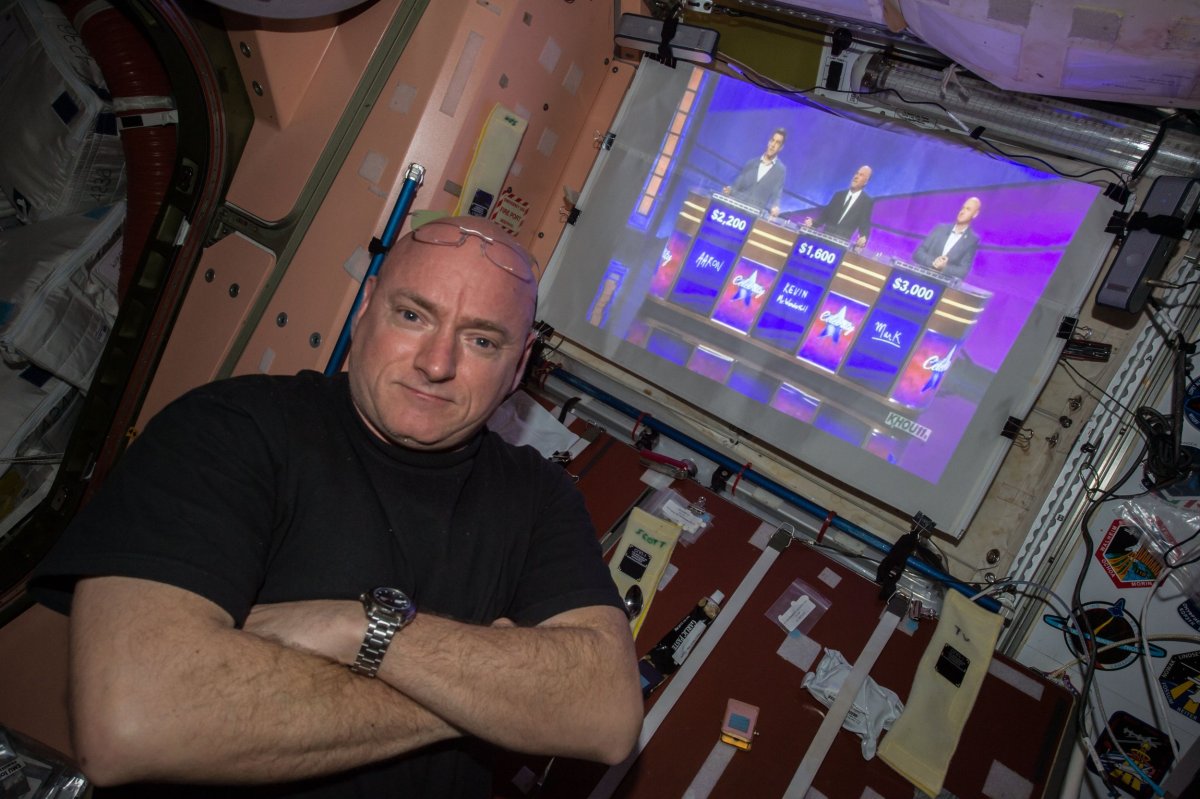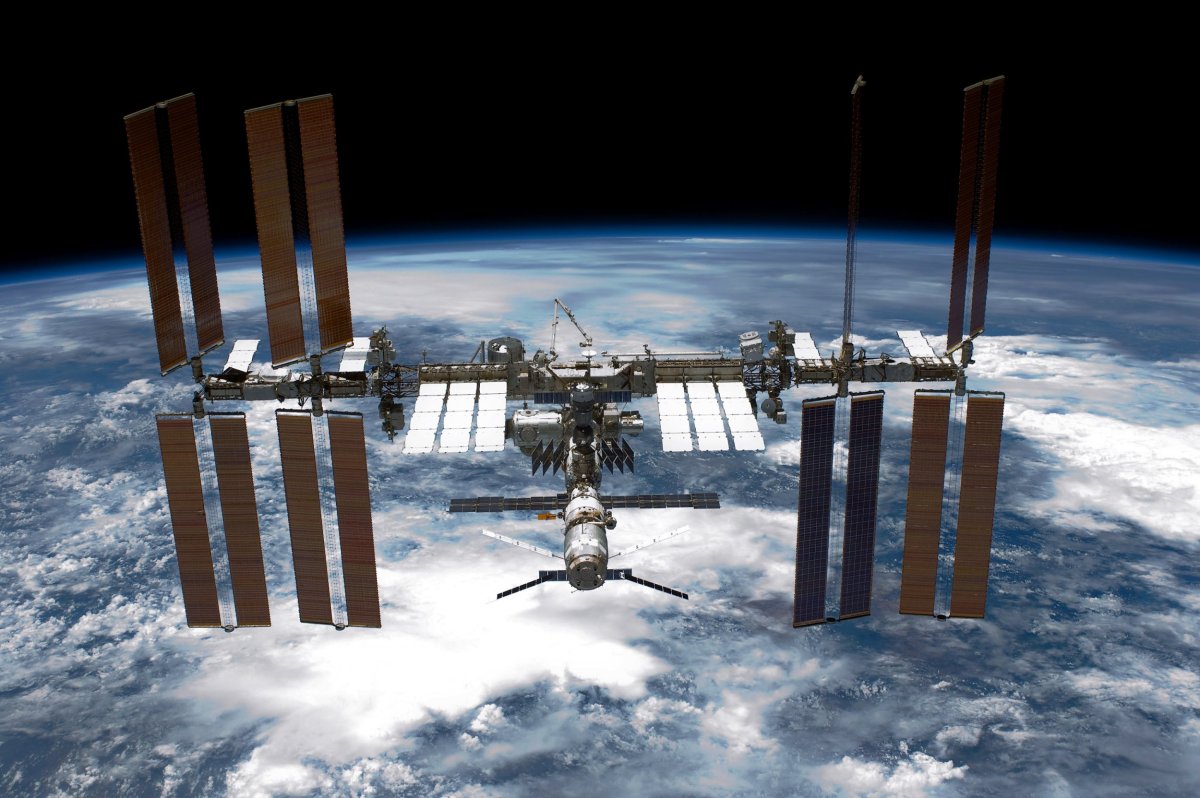Ever since NASA's Apollo Program began putting humans on the Moon 50 years ago, the American imagination has been captivated with dreams of space travel for the masses. As the U.S. Senate recently confirmed a controversial new NASA administrator who advocates space tourism and the exploration of Mars, perhaps the prospect of the average American ditching Earth-bound travel to explore the cosmos might be possible in the not-so-distant future.
However, the human body does not do well beyond the Armstrong limit—59,000-62,000 feet above sea level where death is guranteed without a pressurized enviroment and other protection. And that's before reaching outer space. Without a space suit, bodies would swell, fluids would boil, lungs would rupture, immense pain would be felt, and death would follow in around two minutes.
Even in the relatively protected confines of the International Space Station (ISS), the combination of radiation, microgravity, isolation from loved ones, and a diet consisting of freeze-dried food is far from optimal for sustaining human life.

"Spaceflight is an extreme environment and causes many negative health adaptations to the human body," said Dr Colleen Deane, research associate at the University of Exeter's College of Life and Environmental Sciences. "Some of the changes caused by spaceflight, such as the loss of muscle mass, can be the equivalent of aging over 40 years in a year-long spaceflight," she told Newsweek.
For over a decade, NASA's Human Research Program has investigated how space travel impacts the human body. In January, NASA revealed results of a groundbreaking study in which one astronaut was sent to space for a year, while his twin brother astronaut remained on Earth. It suggested that time in space causes changes in the human body that can linger for months or longer after we return. Findings such as these will be vital if astronauts are to safely complete the estimated three-year round trip to Mars.
Below are some ways that space travel can impact the human body.
Eyes and brain
Last week, retired NASA astronaut Dr. David Wolf delivered a keynote speech at an American Academy of Ophthalmology conference, in which he drew attention to the eyesight damage suffered by many astronauts upon returning to Earth. It can last for years, and scientists aren't sure what causes it.
"In space, fluids tend to shift in the body, accumulating in the upper part; torso and head," Dr. Andreea Font, a lecturer at the Astrophysics Research Institute, at Liverpool John Moores University, told Newsweek. "The effects on the brain structure and function are the most challenging."

"It is believed that these problems may be related to the increased intracranial pressure due to accumulated spinal fluid in the brain," said Font. "MRI scans of long-term astronauts have shown an increased volume of cerebrospinal fluid in the cavity that holds the eye and in the parts of the brain where the fluid is produced. The eye may be acting as a valve for getting rid of this pressure."
Rubber vacuum pants created by Russian scientists, which suck fluids back into the feet, could help astronauts with vision problems, she added.
In the past, the creation of UV radiation blockers to protect astronauts' eyes paved the way for sunglasses, said Deane. "This is just one example of many innovations made by NASA that are now benefiting life on Earth."
Blood
On Earth, the cardiovascular system must work against gravity to pump blood around the body. In a microgravity environment, the right and left ventricles of the heart decrease in mass. The heart rate, blood pressure and the amount of blood the organ pumps out per minute are also all lower. Tests on ISS crew members revealed that their standing heart rate was similar to their heart rate when lying down on Earth.
Immune system
Decades of research has shown that our immune response changes in space. The combination of stress, radiation, microgravity, strange sleeping patterns, and even being alone are thought to mess with the immune system, raising the risk of crew members falling ill. To make matters worse, bacteria appear to be resistant to antibiotic drugs in the space environment, as suggested by a 2017 NASA study.
The musculoskeletal system
Last week, a study published in the Journal of Physiology—based on simulations of how low gravity environments impact the body on 21-day space flights—provided further evidence of the risks space poses to our muscles.
"Two of the major health challenges facing current spaceflight missions and further exploration, i.e. missions to Mars, are the negative adaptations of skeletal muscle impairment," explained Deane, adding that spacesuits aren't equipped to combat the stress placed on our skeleton and muscles.

Due to microgravity, our bones and muscles don't work as hard as they do on our home planet. Evidence suggests that bone density drops by around 1% per month of spaceflight. A study into the mean isokinetic strength of 37 members of the ISS showed it dropped by 8-17% after spaceflight.
The body appears to grow in space too, as gravity compresses the spinal column on Earth. This phenomenon was evidenced by a recent tweet from Japanese astronaut Norishige Kanai, who reported growing around 3.5 inches taller after being in space for three weeks.
Uncommon Knowledge
Newsweek is committed to challenging conventional wisdom and finding connections in the search for common ground.
Newsweek is committed to challenging conventional wisdom and finding connections in the search for common ground.
About the writer
Kashmira Gander is Deputy Science Editor at Newsweek. Her interests include health, gender, LGBTQIA+ issues, human rights, subcultures, music, and lifestyle. Her ... Read more
To read how Newsweek uses AI as a newsroom tool, Click here.






